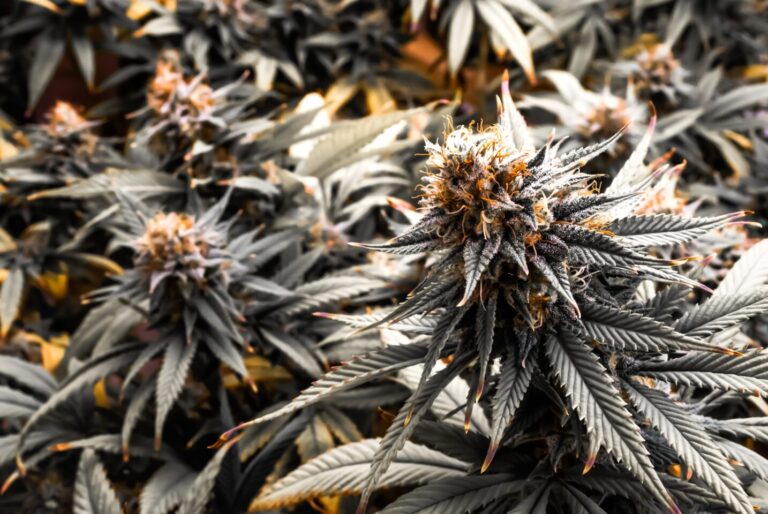A Kansas state lawmaker last week introduced a cannabis amnesty bill that would effectively decriminalize marijuana in the Sunflower State. The measure, House Bill 2363, was introduced in the state legislature by Democratic House Minority Leader Representative Vic Miller on February 8.
Miller’s bill, which already has the support of 34 co-sponsors, would release all persons currently incarcerated for a marijuana-related crime and allow for the expungement of convictions and arrest records for past cannabis-related offenses. The bill also directs state officials to purge information related to such convictions and arrests from relevant state and federal data systems. If passed, the bill would go into effect on July 1, 2023.
“It doesn’t legalize it per se, but it eliminates the serving a sentence punishment,” Miller said in a statement published by the Kansas Reflector.
The bill would effectively decriminalize marijuana in Kansas. Miller said that the bill, which has been referred to the House Corrections and Juvenile Justice Committee for its consideration, is a way to address the state legislature’s failure to make progress on legalizing cannabis in Kansas. Although an analysis of the legislation’s fiscal impact has not yet been published, he added that the bill would significantly reduce costs to prosecute marijuana offenses.
“This is sort of a backdoor way of relieving people of the penalty,” Miller said. “And in and of itself, it would save in my mind, probably tens of millions of dollars related to those prosecutions in those incarcerations.”
Medical Marijuana Bill Expected Soon in Kansas
In December, a bipartisan special committee of lawmakers wrapped up months of hearings to explore aspects of legalizing medical marijuana including regulation and taxation. At the final meeting of the committee on December 15, Republican Senator Rob Olson, the chair of the panel, said that the committee’s work would result in a new medical marijuana legalization bill for the 2023 legislative session.
“We’ll be able to have a bill out of all the stuff, all the testimonies come through here, that will be as good as any bill in the country,” Olson said. “And if this issue passes, I believe it’ll be a bill that most Kansans can be proud of.”
The Kansas House of Representatives approved a medical marijuana legalization bill in 2021, but the measure died in committee and failed to gain the approval of the state Senate. However, Miller suggested that the eventual legalization of medical marijuana in Kansas is inevitable.
“It’s on both sides of us now in Missouri and Colorado, Oklahoma,” Miller said. “So I don’t think we should, as Kansans, be in a race for last place to do something concerning everything. And it won’t be long before we are the last to do it. I think the people of Kansas are ready.”
A limited medical marijuana legalization bill has already been unveiled for the 2023 legislative session. Under Senate Bill 171 from Democratic Senator Tom Holland, the medicinal use of cannabis would be legalized for use by military veterans only.
The bill, which was introduced in the Kansas Senate on February 7, would legalize the cultivation, distribution and sale of cannabis for use by veterans with chronic illnesses, post-traumatic stress disorder, or opioid use disorder. Under the bill, individuals currently serving in a brand of the U.S. military or who have been honorably discharged or generally discharged under honorable conditions will be eligible to apply for a medical marijuana patient identification card within 60 days of enactment of the legislation.
The measure would also levy an excise tax on the cultivation and sale of medical marijuana and establish a regulatory committee to oversee the limited program. After its introduction, Senate Bill 171 was referred to the Senate Committee on Federal and State Affairs on February 8.
“This issue is important to all Kansans,” Holland said in a statement to local media. “States all around the country have enacted laws that allow for marijuana use, at least on a medicinal level. It’s long past due for Kansas to follow in their footsteps.”
Although he did not comment on specific legislation, Republican Representative Eric Smith, vice chair of the House Corrections and Juvenile Justice Committee, said that proposals to legalize medical marijuana need to be developed more thoughtfully.
“I don’t support the present way in which they’re trying to pass marijuana for use in medical situations,” Smith said. “I’m not against the use of THC for medical purposes. I think there is a medical need for it, but I think it needs to be done by those professionals in the medical field, not by the average dispensary run by an entrepreneur.”
